Tag: Fish
-
Health
Eating fish linked to skin cancer risk
In a new study researchers determined that people who eat about 2.6 servings of fish per week have a higher risk for the skin cancer melanoma.
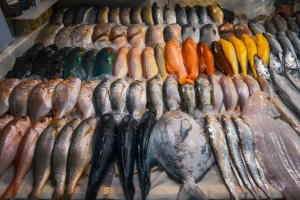
-
Science & Tech
Both marathoner and sprinter
Scientists from Harvard and the University of Virginia have developed the first robotic tuna that can accurately mimic both the highly efficient swimming style of tuna, and their high speed.
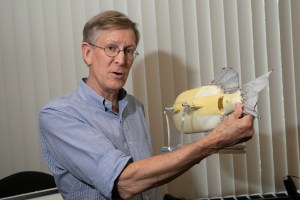
-
Health
Sparking a national debate
Environmental protection is not a goal to achieve but a task to be undertaken by one generation and handed to the next, Gina McCarthy, the former EPA administrator and current director of Harvard’s Center for Climate, Health, and the Global Environment, told the Gazette in an Earth Day interview.

-
Health
Eating our way to a sustainable future
Author Paul Greenberg said eating more and different seafood, emphasizing species that are less energy-intensive to harvest and high in omega-3 fats, can help answer the world’s food challenges in the coming decades.
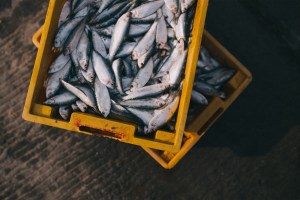
-
Science & Tech
The impact of ocean acidification
In a first-of-its-kind study, findings suggest that continued ocean warming and acidification could impact everything from how fish move to how they eat.

-
Science & Tech
Fish teeth mark periods of evolution
Based on close examination of thousands of fossilized fish teeth, a Harvard researcher found that, while the asteroid impact that killed off the dinosaurs did lead to the extinction of some fish species, it also set the stage for two periods of rapid evolution among marine life.
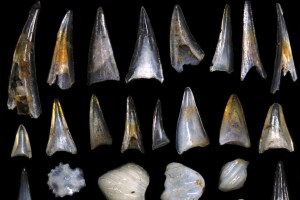
-
Science & Tech
For answers on coral conservation, she followed the fish
A new study suggests that efforts to restore coral reefs have a positive impact on fish populations, both short- and long-term.
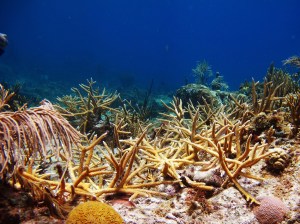
-
Health
All goes swimmingly
Using simple hydrodynamics, a team of Harvard researchers was able to show that a handful of principles govern how virtually every animal — from the tiniest fish to birds to the largest whales — propel themselves through the water.

-
Health
Pinpointing the higher cost of a healthy diet
The healthiest diets cost about $1.50 more per day than the least healthy diets, according to new research from Harvard School of Public Health. The finding is based on the most comprehensive examination to date comparing prices of healthy foods and diet patterns against less healthy ones.

-
Health
Coelacanth genome surfaces
An international team of researchers has decoded the genome of a creature whose evolutionary history is both enigmatic and illuminating: the African coelacanth
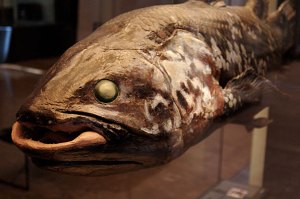
-
Health
Mercury pollution, still spreading
With mercury contamination from coal burning and other industrial processes spreading in the environment, a new book edited by a Harvard Medical School staff member offers an overview, touching on chemistry, biology, and public health.

-
Health
Fish in depth
The renovated fish gallery at the Harvard Museum of Natural History, open as of June 2, includes displays that explain both fish biology and the science being conducted on the topic at Harvard.

-
Health
Red meat raises red flags
A new study by Harvard School of Public Health researchers has found that red meat consumption is associated with an increased risk of total, cardiovascular, and cancer mortality.

-
Health
Harvard serves up its own ‘Plate’
The Healthy Eating Plate, a visual guide that provides a blueprint for eating a healthy meal, was unveiled today by Harvard nutrition experts.
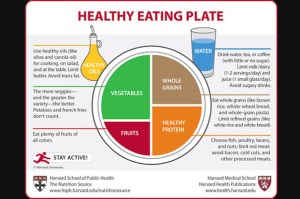
-
Science & Tech
How fish swim
Scientists have long believed that sunfish, perch, trout, and other such bony fish propel themselves forward with the movement of their tails, while their dorsal and anal fins — the fins on their tops and bottoms — work primarily as stabilizers.
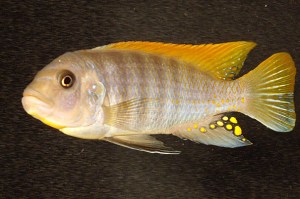
-
Health
Benefits of eating fish tip the scale
In a new, large-scale study from Harvard School of Public Health and Brigham and Women’s Hospital, researchers found no evidence that higher levels of mercury exposure were associated with higher risk of coronary heart disease, stroke, or total cardiovascular disease in two separate studies of U.S. adults.

-
Science & Tech
Volumetric Imaging of Fish Locomotion
Using a new form of laser imaging device, Brooke Flammang and colleagues at Harvard’s Museum of Comparative Zoology have discovered that “the dorsal and the anal fin make a great contribution to the caudal [tail fin] wake,” and thus are additional propellers, and not just stabilizers. A cichlid swims in the particles that the laser…
-
Health
Teen diets can hurt their lungs
For most teenagers in the United States and Canada, fish and fruit are not high on their delicious list. Also, many of them — about 20 percent of those under 18 — cough, wheeze, and suffer from asthma and bronchitis. Researchers at the Harvard School of Public Health (HSPH) have found a connection between these…
-
Health
When fish first started biting
Before fish began to invade land, about 365 million years ago, they had some big problems to solve. They needed to come up with new ways to move, breathe, and eat.


